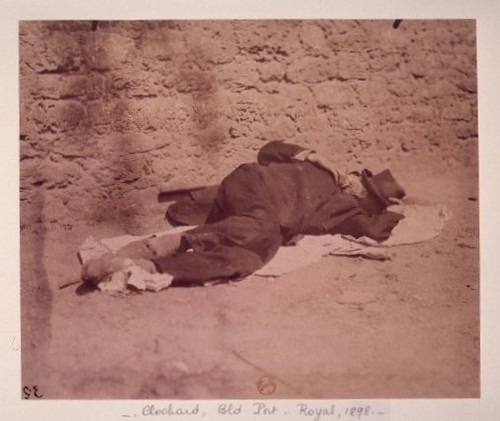
(
Zen and the Art of Commercialism)
If there is an audience for it in America, it will follow with marketing. Once someone has made good money at it, 1000 people will follow suit with similiar ideas, rushed through for the sake of money. That is the essence of the land of opportunity; of snake oil and cure-alls.
Many say that Buddhism has completed its introduction to the West and will now move on to the next phase. But for every qualified teacher who has lived a life of contemplation and compassion in a monastery, passing knowledge down the tree of wisdom, there are hundreds who, for want of money, fame or illusory spiritual servitude release what has become "American Buddhism" onto the New York Times BestSeller List. These books could easily fall under "New Age-Referencing Buddhist Ideas-
Self Help-It Is Ok To Love Yourself-
You can be happy...
if you keep buying my books-."
The best source of Buddhist works could be guessed by a child. Buddha Shakyamuni sat under the Bodhi tree and Buddha Shakyamuni awakened and gained the
Paramitas. Shocked was I to meet Buddhist after Buddhist in America who wore the mala, had the bumper sticker, but had never read even a single sutra by the Buddha himself. Almost every Buddhist knows of the Four Noble Truths but I could find few American-born Buddhist who had read the sutra that contains them. (Though one finds this problem in the Buddhist lands themselves) Many of these sutras can be read in less than 5 minutes!
Buddhism is not a judgmental practice, one will not be condemned for not knowing the words of a sutra, but it is not an easy path. Many turn to Buddhism with the mistaken belief that "things will be easier" when in fact, "things might be harder."
Too often we place our trust in those who are marketing tools in and of themselves. We see their faces on the book sleeves and even if we don't know who they are, we get the sense that the author is important. Opening the book, we find out that the author is a professor of Buddhism at Such-and-such University, which is wonderful, but means very little. Buddha Gautama is very clear in the
Anguttara Nikaya that the path to Nirvana lies not in the life of the worldling (householder) but only with those that leave the household, give up all possessions, give up all time, wear the oche robes, and with modesty, carry the alms bowl. A family man, Byagghapajja, meets the Buddha and asks him how to find happiness in this life. Normally, the Buddha mentions faith, moral discipline, generosity, and wisdom, but what of the worldling?
"There are, Byagghapajja, four things that lead to the welfare and happiness of the family man in this very life. What four? The accomplishment of persistent effort, the accomplishment of protection, good friendship, and balanced living."The Buddha goes on to explain each of these four in detail and ends by coming full circle:
"Four other things lead a family man's welfare and happiness in the future life. What four? Accomplishment in faith, moral discipline, generosity, and wisdom."Anguttara Nikaya 8:54; IV 281-85You can see that, though he shows a path for the worldling, the clear path is for the ascetic. And so any views that we read from the Professor will be defiled views, no matter how many times over a University may give him the degree. A University is not a monastery and spiritual trascendence, insight, and wisdom do not awaken during doctoral papers. (Though there are University professors who are former monastics, or the rare exception like D.T. Suzuki)
Of course, as a member of the sangha, the professor, the Pop-Buddhist Self-Help Buddhist author, or other laymen author can offer us support and show us that others are experiencing the same problems or aiming for the same goals. They can be a peer. It is important to remember when reading that we examine the source. Remember that even Buddha Shakyamuni himself asks us not to accept something only because he had said it to be so, but to examine it for ourselves. We must sort our teachings into two piles, those of the Sangha (books from our peers) and those of the Dharma itself, along with the teachers who had been taught in lineage to pass along that teaching to you.
A serious problem of humanity in all religions, traditions, ideals, and systems is that lines becomed blurred and crossed and old ways return. In India, Brahmanistic ways were always resurfacing in Buddhism up until the Mongol invasions.
Nagarjuna (c. 150-250 CE) founded the
Madhyamaka (Middle Way) school, which forged through the extremes of the other schools, illuminating the true wisdom of the Buddha. The works of
Nagarjuna and his predecessors, such as
Chadrakirti, help us to discern for ourselves what it true wisdom, and what is only "Buddhist Self-Help" material. Be warned: If you have treaded in the muddy swamp, the clear light of
Nagarjuna might be very painful.
Remember, though the lamp shines just the same, if covered by a box, we cannot see the light. Make sure to see clearly through to the wisdom of the Buddha with as little in between you and him as possible. Do not be caught up in the appealing packaging of the box for it hides the light of the lamp.
That fire of illumination is not so great in the defiled mind. Thus spoke the Buddha:
"Suppose there were a wet sappy piece of wood lying in water, and a man came with an upper fire-stick, thinking: 'I shall light a fire, I shall produce heat.' What do you think, Aggivessana? Could the man light a fire and produce heat by taking the upper fire-stick and rubbing it against the wet sappy piece of wood lying in the water?"
"No, Master Gotama. [Buddha] Why not? Because it is a wet sappy piece of wood, and it is lying in water. Eventually the man would reap only weariness and disappointment."
"So, too, Aggivessanna, as to those ascetics and brahmins who still do not live bodily withdrawn from sensual pleasures, and whose sensual desire, affection, infatuation, thirst, and fever for sensual pleasures has not been fully abandoned and suppressed internally, even if those good ascetics and brahmins feel painful racking, piercing feelings due to exertion, they are incapable of knowledge and vision and supreme enlightenment." Mahasaccaka Sutta; I 240-49
We must also remember that one may leave the "water" or worldling life or become a monk but the desire realm may yet stir within the mind. Even our teachers, those on "dry land", must be examined for the wisdom of the teachings. Buddha continues:"Suppose there were a wet sappy piece of wood lying on dry land far from water, and a man came with an upper fire-stick, thinking: 'I shall light a fire, I shall produce heat.' What do you think, Aggivessana? Could the man light a fire and produce heat by taking the upper fire-stick and rubbing it against the wet sappy piece of wood lying on dry land far from water?""No, Master Gotama. [Buddha] Why not? Because it is a wet sappy piece of wood, even though it is lying on dry land far from water. Eventually the man would reap only weariness and disappoinment.""So too, Aggivessana, as to those ascetics and brahmins who live bodily withdrawn from sensual desires, but whose sensual desire, affection, infatuation, thirst, and fever for sensual pleasures has not been fully abandoned and suppressed internally, even if those good ascetics and brahmins feel painful, racking, piercing feelings due to exertion, they are incapable of knowledge and vision and supreme enlightenment."
Mahasaccaka Sutta; I 240-49Is there any dry wood on dry land?
"Suppose there is a dry sapless piece of wood lying on dry land far from water, and a man came with an upper fire-stick, thinking: 'I shall light a fire, I shall produce heat.' What do you think, Aggivessana? Could the man light a fire and produce heat by rubbing it against the dry sapless piece of wood lying on dry land far from water?"
"Yes, Master Gotama. [Buddha] Why so? Because it is a dry sapless piece of wood, and it is lying on dry land far from water."
"So too, Aggivessana, as to those ascetics and brahmins who live bodily withdrawn from sensual pleasures, and whose sensual desires, affection, infatuation, thirst, and fever for sensual pleasures has been fully abandoned and suppressed internally, even if those good ascetics and brahmins feel painful, racking, piercing feelings due to exertion, they are capable of knowledge and vision and supreme enlightenment."
Mahasaccaka Sutta; I 240-49
All paths lead to ochre robes.
Buddhanet.net has a large collection of sutras and other Buddhist writings available at no charge.
Here are a few examples: (pdf)
The DhammapadaDhammacakkappavattana SuttaThe Diamond Sutra
And for a list of quality Buddhist books, look at the
For the Preservation of the Mahayana Tradition Bookstore for an example.
1. Bodhi, Bhikkhu In The Buddha's Words Somerville: Wisdom Publications, 2005
Somerville: Wisdom Publications, 2005

 With Loss, He is Dejected.
With Loss, He is Dejected.























